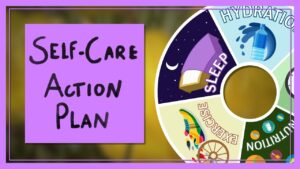Do you ever feel like you’re just born different? That something is off about you and you can’t quite put your finger on it? If so, you might be one of the millions of people who are born with OCD. OCD stands for Obsessive-Compulsive Disorder, and it’s a mental disorder that affects how people think, feel, and behave. In this blog post, we will discuss what being born with OCD is, what its causes are, how it affects, and what can be done in order to overcome it.
Contents
Born With OCD: What Does It Mean?
Born with OCD means that a person has OCD from birth. There are many examples of people with OCD who were born with the condition. One example is a person who was born with the need to wash their hands every time they touch something.
Another example is a person who was born with the need to check things repeatedly. These are just two examples of people with OCD who were born with the condition. There are many other examples out there as well.
What Are Risk Factors?
Below mentioned are the risk factors that result in OCD by birth:
- Genetic: If any immediate family member such as a parent or sibling is suffering from OCD, then the chances of developing the disorder are increased.
- Environmental: If the expectant mother is exposed to stressful events during pregnancy, it may result in the child being born with OCD.
- Neurochemical: The imbalance of neurotransmitters in the brain is also linked to OCD.
- Infections: Some infections during pregnancy or at birth have also been linked to OCD.
- Psychological: If the mother is suffering from depression, anxiety or any other mental disorder during pregnancy, it may result in the child being born with OCD.
- Physical: Some physical disorders such as Tourette’s syndrome or Sydenham’s chorea have also been linked to OCD.
What Are The Consequences?
OCD-born individuals may face many challenges and consequences due to their condition. Some of these challenges and consequences could include:
Difficulty forming attachments and relationships
OCD can result in difficulty forming attachments and relationships for several reasons. One reason is that individuals with OCD may have trouble trusting others. This is because they may constantly doubt the motives of others and feel like they can’t trust anyone. This can make it difficult to form close relationships. Additionally, people with OCD may avoid certain situations or activities out of fear of triggering their OCD.
For example, a person with OCD may be afraid to leave their house because they are afraid of getting lost. This can make it hard for them to maintain friendships or go on dates.
If a person with OCD is in a relationship, they may have difficulty trusting their partner or being intimate with them. This can put a strain on the relationship and make it difficult to maintain a healthy connection.
If a person with OCD becomes fixated on certain things being “clean” or “germ-free”, it can cause the person to avoid going out in public, or even leaving their home because they are afraid of coming into contact with germs.
For example, a person becomes fixated on a certain order or symmetry. This can cause the person to spend hours arranging objects in their environment just so or obsessively organizing their schedule that they forget to socialize with their friends, colleagues, and family.
Poor self-esteem and low self-confidence
If you are born with OCD, you will likely suffer from poor self-esteem and low self-confidence. This is because OCD can be a very debilitating condition that can make it difficult to function in everyday life.
For example, if you have OCD, you may obsessively clean your house or office to the point where it interferes with your work or social life. You may also avoid certain activities or places because you fear that they will trigger your OCD symptoms.
Depression or anxiety
Constant worry and stress of living with OCD can lead to a feeling of hopelessness and despair, which can eventually lead to clinical depression. Another possibility is that the repetitive behaviors associated with OCD can become so all-consuming that they leave little time or energy for anything else, leading to feelings of isolation and loneliness.
And finally, it’s also possible that the physical symptoms of OCD (such as fatigue, muscle tension, and sleep problems) can contribute to the development of anxiety disorders.
Substance abuse
People born with OCD may turn to drugs or alcohol as a way to cope with their intrusive thoughts and compulsions. Some substances can help temporarily relieve the anxiety and distress that comes with OCD but ultimately lead to more problems.
They may also engage in risky behaviors while under the influence of drugs or alcohol, which can lead to accidents or injuries. Substance abuse can also worsen the symptoms of OCD and make it more difficult to manage the disorder.
Suicidal thoughts or behaviors
Constant anxiety and fear caused by OCD can become so overwhelming that it leads to despair and a belief that death would be preferable to living with the condition. Another possibility is that certain obsessive thoughts or compulsions related to suicide may become so obsessional that the person feels driven to act on them to relieve the anxiety they cause.
Still another explanation could be that people with OCD are more likely to have other mental health conditions (such as depression) which increase the risk for suicidal thoughts and behaviors.
Legal problems
Being born with OCD can lead to legal problems in several ways. For example, if a person with OCD is unable to control their compulsions, they may break the law in an attempt to satisfy their need for symmetry or order. This could lead to charges of vandalism or trespassing. In severe cases, OCD can also lead to hoarding, which can result in eviction from one’s home or office space.
Additionally, people with OCD may have difficulty keeping track of important papers and documents, which could lead to financial difficulties or even fraud. While most people with OCD are not criminals, the disorder can certainly complicate one’s life and make it difficult to function normally in society.
Health problems
Obsessions and compulsions associated with OCD can be very stressful and take up a lot of time and energy. This can lead to difficulties in school or work, social isolation, and other problems. born with OCD individuals may also experience physical consequences as a result of their OCD behaviors, such as:
- Excessive skin picking or hair pulling could lead to infections or permanent scarring
- Chronic fatigue from lack of sleep due to obsessive thoughts and rituals
- Gastrointestinal distress from compulsive overeating or food avoidance
- Joint and muscle pain from excessive washing and cleaning rituals. If you are born with OCD, live.
What Are The Solutions To Deal?
There exist a variety of treatment options that may help you manage and overcome your OCD symptoms. Some of them are:
Therapies
These are professional therapies that are given by a trained therapist so that you may overcome your mental disorder. There exist various types of psychotherapies in this regard such as:
- Cognitive Behavioral Therapy: CBT can help people learn to manage and overcome their OCD by teaching them new ways of thinking and behaving. For example, those born with OCD might think that they are evil if they have certain thoughts or engage in certain behaviors. CBT can help them to see that these thoughts are just part of their OCD and that they are not evil.
- Exposure And Response Prevention: ERP works by exposing the individual to their fears and anxiety-inducing stimuli in a controlled environment, then teaching them how to respond to these triggers healthily. The goal is to help the individual learn how to cope with their fears and anxiety without resorting to unhealthy coping mechanisms, such as avoidance or compulsions.
- Acceptance and Commitment Therapy: ACT is a helpful way of managing OCD by birth by teaching individuals to accept their thoughts and feelings, commit to taking action in line with their values, and let go of their thoughts and feelings. All of these skills can help to prevent the individual from getting caught up in the cycle of obsessions and anxiety that can often accompany OCD.
There are many other therapies not mentioned here that may also help manage OCD by birth.
Self Coping Strategies 
One of the most important things to remember when dealing with OCD is that recovery is possible. With treatment and support, many people who have OCD can live full and productive lives.
Here are some self-care strategies that may help you or someone you know deal with being born with OCD:
- Practice relaxation techniques. Learning how to relax can be a valuable tool in managing OCD symptoms. Several different relaxation techniques can be effective, including yoga, meditation, and deep breathing exercises.
- Challenge your thoughts. A helpful self-care strategy is to challenge these thoughts by asking yourself whether they’re true or likely to happen.
- Connect with your loved ones. If you have OCD, it’s important to keep up with your social relationships. Connecting with loved ones can help reduce stress and provide much-needed support.
- Indulge in any art form. Doing something creative can be a great way to distract yourself from OCD thoughts and help you relax. It can also be a fun and rewarding activity in its own right. For example, you might enjoy painting, drawing, sculpting, photography, or writing.
- Enjoy special occasions. It’s important to find joy in the special moments of life, even when you’re dealing with OCD. Make an effort to participate in birthdays, holidays, and other celebrations. This can help you feel connected to your loved ones and remind you that there’s more to life than OCD.
These are just a few self-care strategies that may help deal with OCD from birth. Remember, recovery is possible with treatment and support. If you or someone you know is struggling with OCD, there are many resources available to help.
Conclusion
OCD can be born in the person and it is necessary to take some self-care strategies to deal with it. Some of the strategies given above which may be effective for the patients. And if you or anyone you know is suffering from OCD then there are many resources available that can help you out.
So, this was all about OCD born, its causes, and how to deal with it. I hope this article will be helpful for you in some way. Don’t spoil your life with this mental illness, born with OCD can be cured by taking some self-care strategies and getting help from many resources available. Know how to deal with it and stay happy
Professional Guidance is the first step to moving toward your healing journey. You can try reaching Therapy Mantra to seek expert help in the comfort of your own home. Our therapists will help you get a solution to manage and overcome your problem. You can book your online therapy and talk directly to your assigned mentor. You may also download our freeOCD treatment app on Android or iOS app.






